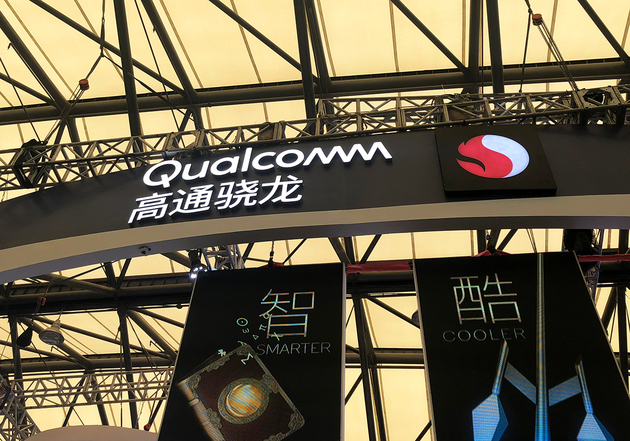
Photo/Shetuwang
Jan. 7 (NBD) -- The U.S. Federal Trade Commission (FTC) and Qualcomm made their opening arguments in a San Jose court on January 4 as part of a 10-day trial, after the FTC filed antitrust lawsuit against the world's largest supplier of modem chips two years ago.
Industry players such as Lenovo and Huawei testified in the no-jury trial, which had drawn great attention. Other companies including Intel, Apple and MediaTek will also testify in court in days ahead, news outlet Yicai reported citing sources with knowledge of the matter.
What is crucial to the situation is that District Court Judge Lucy Koh, who presides over court proceedings this time, ruled last November that Qualcomm must license some patents involved in making modem chips to rival chip firms such as Intel, Florian Mueller, the founder of the FOSS Patents blog, said to Yicai.
Having attended the court trial, Mueller told Yicai that Huawei and Lenovo described in videotaped testimonies how they were threatened with disruptive chip supplies to sign Qualcomm's license agreements.
Lenovo said in the videotaped testimony that the company considered the patent royalties extracted by Qualcomm far too high, Mueller added.
Ira Blumberg, vice president of intellectual property at Lenovo, confirmed the testimony with Yicai, saying that Qualcomm has in the past retaliated against customers who have attempted to challenge its legal terms by either delaying, or cutting off supply of chips. "We don’t know if Qualcomm would follow through on their threat to cut off supply, but we can’t take that risk."
Huawei General Counsel Yu Nanfen, in a video deposition played for the court, claimed that during negotiations over new chip-sets in 2013, Qualcomm informed Huawei that if it didn’t extend the CDMA (code division multiple access) license agreement, the chip maker would stop supplying the chips. "We had no choice." Huawei declined to comment on this matter upon Yicai's request. Muller said a Sidley Austin lawyer represented Huawei in court on January 4. Sidley Austin is the same firm that's asserting patents against Samsung on Huawei's behalf.

Photo/Zhang Xiaoqing
A source at Lenovo told Yicai that it's no surprise that both Huawei and Lenovo testified against Qualcomm, as Apple was already in the legal battle with Qualcomm. Besides, Huawei is the second largest phone maker across the globe and China is the world's largest phone market. Key players in the smartphone industry have been opposing the patent licensing model of Qualcomm for several years, but the situation hasn't changed much.
Jia Mo, analyst with market research firm Canalys, noted that patent royalties constitute a major revenue source for Qualcomm. Although it appears litigations, which take a long time and depend on whether there will be substantive rulings or verdicts with mandatory enforcement, have little chance to exert impacts on Qualcomm in a short time, yet with more players joining in the boycott against Qualcomm, the San Diego chip firm's licensing model could possibly come to an end. This is an issue which Qualcomm has to resolve before things get escalated, Jia commented.
Jia also pointed out to Yicai that another scenario is that Qualcomm may reach a settlement with these phone makers during the lengthy litigation process. Situations will evolve as the case progresses.
Muller said to Yicai that the rulings of the FTC versus Qualcomm case will potentially affect the legal battle between Qualcomm and Apple. The two companies will meet in a San Diego federal court on April 15, 2019.
The legal battle between Apple and Qualcomm has reached a new level, as the chip giant was granted injunctions against Apple, banning the latter from selling some iPhone models in China and Germany.
On January 3, Apple submitted new evidences of compliance to the Fuzhou Intermediate People's Court in China, saying that the evidence will put an end to Qualcomm's "dishonest and misguiding" accusations.
Email: gaohan@nbd.com.cn


 川公网安备 51019002001991号
川公网安备 51019002001991号





